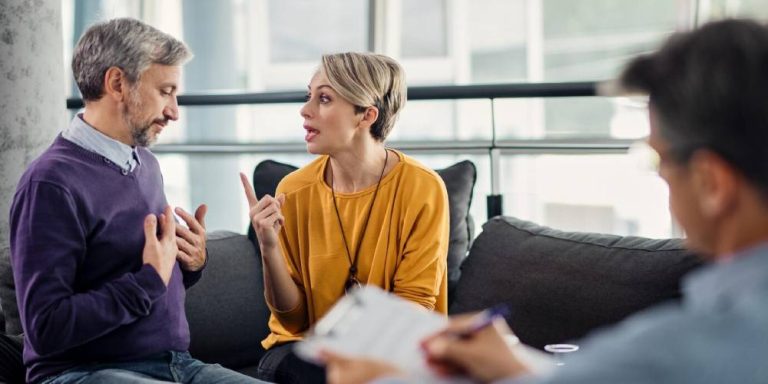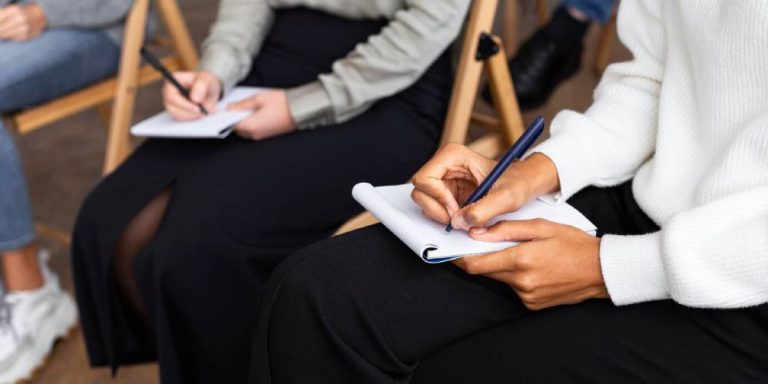Building Stronger Relationships Through Effective Communication
Effective communication is the cornerstone of any healthy relationship, whether it be with a partner, family member, friend, or colleague. When people communicate openly, honestly, and with empathy, they can foster deeper connections and overcome challenges together. However, communication breakdowns are often at the root of relationship conflicts, leading to misunderstandings, hurt feelings, and distance. Learning how to communicate effectively can help build stronger, more fulfilling relationships that stand the test of time.
In this article, we’ll explore what effective communication looks like, why it matters in relationships, and practical tips to help improve how you communicate with those around you.
What is Effective Communication?
Effective communication goes beyond just talking and listening; it’s about truly understanding and being understood by the other person. It involves:
- Clarity: Expressing thoughts, feelings, and needs clearly and directly without causing confusion.
- Active Listening: Listening to understand, rather than simply waiting for your turn to speak. Active listening also involves reflecting back what you’ve heard to ensure you’ve understood correctly.
- Empathy: Showing compassion and understanding for the other person’s perspective, even if you don’t agree with it.
- Nonverbal Communication: Paying attention to body language, facial expressions, and tone of voice, which often communicate more than words themselves.
When communication is effective, it builds trust and fosters an emotional connection, which is essential for maintaining any kind of relationship. On the other hand, poor communication can lead to misunderstandings, conflict, and emotional distance.
Why Effective Communication Matters in Relationships
Communication is the foundation of any successful relationship. Here are some key reasons why it’s so important:
- Builds Trust: Open and honest communication is key to building and maintaining trust. When people feel they can share their thoughts and feelings without fear of judgment or dismissal, trust naturally deepens.
- Resolves Conflicts: Every relationship experiences conflict, but how we communicate during those moments can either escalate or resolve the issue. Effective communication allows both parties to express their concerns and work towards a solution together.
- Strengthens Emotional Intimacy: Sharing your thoughts, fears, and dreams with another person deepens emotional intimacy. Being able to communicate openly helps partners, friends, or family members feel connected on a deeper level.
- Prevents Misunderstandings: Poor communication can easily lead to misunderstandings and hurt feelings. By communicating clearly, you reduce the chances of misinterpretation and ensure that both parties are on the same page.
- Fosters Mutual Respect: When communication is healthy, it demonstrates respect for one another. Listening attentively and responding thoughtfully shows that you value the other person’s perspective, strengthening the relationship.
Barriers to Effective Communication
Before diving into tips for better communication, it’s important to acknowledge some of the common barriers that can prevent people from communicating effectively:
- Assumptions: Assuming you know what the other person is thinking or feeling without asking can lead to misunderstanding and resentment.
- Emotional Triggers: Emotions like anger, fear, or frustration can cloud judgment and lead to defensive or aggressive communication.
- Distractions: Not being fully present in the conversation, whether due to technology, stress, or other distractions, can prevent meaningful exchanges.
- Poor Listening Skills: Often, people listen with the intent to reply, rather than to understand. This creates a barrier to truly hearing what the other person is saying.
Practical Tips for Building Stronger Relationships Through Communication
Now that we’ve covered the importance of communication and its potential barriers, let’s look at some practical tips you can implement to improve communication in your relationships.
- Practice Active Listening Active listening means fully focusing on the speaker, making an effort to understand their words, and responding thoughtfully. This involves maintaining eye contact, nodding or using small verbal acknowledgments (like “I see” or “I understand”), and reflecting back what the other person has said to ensure clarity.
Tip: Try paraphrasing or summarizing what the other person says. For example, “So what I’m hearing is that you feel upset because I didn’t include you in the decision. Is that right?” This shows that you’re engaged and seeking to understand their perspective.
- Use “I” Statements When expressing feelings or concerns, use “I” statements instead of “you” statements. For example, say, “I feel upset when we don’t spend time together,” instead of “You never make time for me.” This reduces the likelihood of the other person feeling blamed or attacked and opens the door for constructive conversation.
- Stay Calm During Conflicts It’s easy to let emotions take over during conflicts, but staying calm is essential for effective communication. Take a deep breath and focus on the issue at hand rather than letting the conversation spiral into personal attacks or unrelated grievances.
Tip: If you feel the conversation becoming heated, take a break and come back to it later when both parties are calmer. Express your intent: “I want to talk about this, but I need a few minutes to cool down first.”
- Pay Attention to Nonverbal Cues Body language, tone of voice, and facial expressions often communicate more than words themselves. Make sure your nonverbal communication aligns with your words. For example, if you’re discussing something important, maintain eye contact and avoid crossing your arms, which may signal defensiveness.
Tip: Practice open body language by facing the person, keeping an open posture, and maintaining appropriate eye contact. These gestures can help build trust and encourage the other person to open up.
- Empathy and Validation Empathy is the ability to understand and share the feelings of another person. When communicating, try to see things from the other person’s perspective and validate their emotions, even if you don’t agree with their viewpoint.
Tip: You can say something like, “I understand why you’re upset, and I can see how this situation has been hard for you.” This shows that you’re acknowledging their feelings, which can diffuse tension and promote understanding.
- Set Aside Regular Time for Meaningful Conversations In our busy lives, it’s easy to let meaningful communication slip by. Make it a habit to set aside regular time to check in with your loved ones. Whether it’s a weekly date night with your partner, a family meeting, or a phone call with a close friend, these moments allow you to connect and discuss things that matter.
Tip: During these conversations, try to minimize distractions like phones or TV. Be fully present and engaged in the conversation to make the most of your time together.
- Be Open to Feedback Communication is a two-way street, and part of being an effective communicator is being open to receiving feedback. If someone shares something you could improve upon in your relationship, try to listen with an open mind rather than becoming defensive.
Tip: If you feel defensive, take a moment to breathe before responding. You can say, “I appreciate your honesty, and I’ll work on that,” to show that you value the feedback.
The Role of Counseling in Improving Communication
Sometimes, despite our best efforts, communication breakdowns continue to occur. If this is the case in your relationship, counseling can be an invaluable resource. Relationship counseling or couples therapy provides a safe space for both parties to express their thoughts and emotions with the guidance of a professional.
A counselor can help identify communication patterns that may be contributing to conflict and offer tools and strategies to improve how you communicate. Whether it’s resolving conflict, improving intimacy, or just learning to listen better, counseling can provide the necessary support for building healthier, stronger relationships.
Conclusion
Building stronger relationships through effective communication requires practice, patience, and empathy. By learning to listen actively, express yourself clearly, and manage conflict with calmness and respect, you can foster deeper, more meaningful connections with those you care about. Remember, communication isn’t just about talking—it’s about understanding and being understood, and when done well, it strengthens the bonds that hold relationships together.



